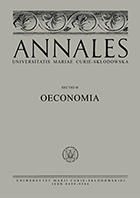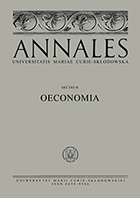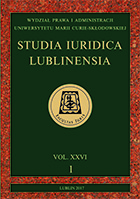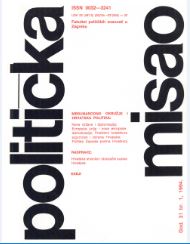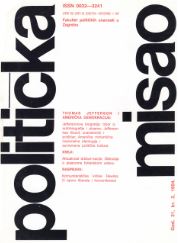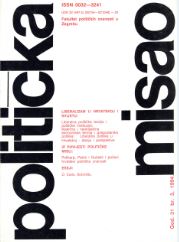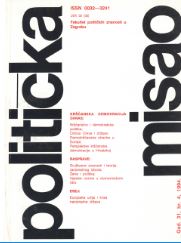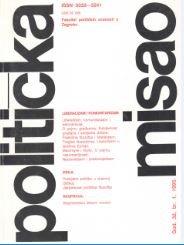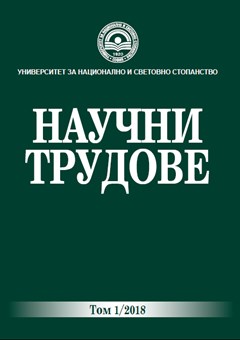Author(s): Oleksandr Tsekhmistrenko / Language(s): Ukrainian
Issue: 1/2013
In article actual problems of economic culture in a context of culture of a postmodern are considered and ways of their decision, the found out problems of modern economic culture, modern economy and culture in works of foreign and domestic philosophers, culturologists and sociologists are found out ; the found out main principles of culture of a postmodern; depth of problems of modern economic culture in a context of culture of a postmodern is shown. Our society is currently facing both economic and social problems similar to those being experienced by the rest of the world. Thus social and economic problems experienced by society and individuals are usually caused by the phenomena of modern economic culture, and the most urgent problem of economic culture, in our view, is the problem of its being influenced by postmodern culture. In our opinion, it is the postmodern culture influence factor that affects modern economic culture thus causing mostly both economic and social problems of our society. Thus, revealing the problems of economic culture is the task of primary importance for us, since detailed consideration of these issues will reveal the mechanism of their formation, and hence will enable us to predict them. The modern economic culture related issues have been carefully studied by a number of philosophers, sociologists and cultural studies, namely: M. Moss, B. Malinovskyy, R. Firs who suggested an analysis of economic culture at the early stages of human development. The works by Weber, V. Zombarta, S. Bulhakova have been devoted to seeking connections between the spiritual sphere of culture and economic activity and abandon in rich historical material, important theoretical generalizations, ideas and methodological developments. V. Inozemtseva, D. Carnegue, M. Meskoni in their works have analyzed the contemporary economic culture and identified key trends and challenges pertinent to postindustrial market civilization. J. Baudrillard, G. Bataille, K. Jaspers in their studies reflected their skepticism in terms of contemporary economic culture that is driven by postmodern culture as well as expressed their doubts in relation to economic crisis-free culture. The works by Ukrainian philosophers V. D. Isayeva, T. V. Luhutsenko, M. A. Zhurba et al. have demonstrated the basic methodological premise of the study of economic culture with the cultural approach being the main research method. The consistent and progressive changes taking place in the economic culture of the West represent the dialectical development of the system with the ever increasing internal conflicts being removed at the entry to the new level. Crisis Economics has found its ideological justification in the new principles suggested by postmodernism. Hardly can it be said about the formation of the postmodern economic culture in Eastern Europe, including Ukraine, it creates problems for these countries which are alien to Western Europe. The Ukrainian mentality has been significantly affected by permanent reforms deeply rooted in the 18th century. On one hand, there have been formed steady formed a steady fear towards any reforms based on the confidence that they would bring no good, on the other hand – they have developed a kind of immunity that diminishes people’s attention to reform and lead to their neglect. Traditionalism, community spirit, domination of common good over private interests form the basis of the mentality of our nation. In the Soviet period, most of the mental attitudes did not change much, organically transferring into a new economic reality. In addition to the traditional mentality and actions of the constantly changing economic institutions, modern economic culture of Ukraine fell under the direct influence of Western economic culture of postmodernism, some outward manifestations of which were copied. These are mainly those of its elements that indicate the status and quality of life indicators. In the West, modernity meets industrialization and postmodern – the formation of post-industrial information society.The analog of the basis of Western modernity (industrialization) in the domestic culture still can be found, but up to the economic culture of postmodernism we do not come up in the state of post-industrial development, but rather the industrial degradation. Thus, organic learning and the realization of postmodernistic principles in the economic culture has been simultaneously prevented by the discrepancy in the level of development of economic institutions and revolutionary character of changes in culture. We emphasize that the religious justification of economic activity in modern economic culture is almost completely absent, due to the declining the real authority of the church, and the importance of religious consciousness. The ethical standards of economic activities are irrelevant under market conditions, and legal ones – has not been worked out yet and are not accepted due to the mental disposition of our nation aimed at the superiority of moral over law. The educational system offers the subject of economic activity outdated, incomplete knowledge, with no practical value. It, in its turn has caused stagnation in economic science, which does not produce the necessary fundamental knowledge about the laws of economic development. Thus, the motives of an economic operator are justified only by current needs, and economic programs do not lead to success, or just create problems to other economic operators. Having examined the suggested methods in modern literature to overcome this situation, namely – "reformatting elite" and "the revival of religious identity", economic development, economic culture, a systematic approach that includes a point of weakness in the institutional framework of economic culture and hidden form new mental settings – it can be concluded that all these measures are really necessary and meaningful, but either fragmented or insufficient. Their implementation is very difficult under the conditions of distribution postmodern principles, private interests which have priority and reject the idea of a tribute. In our opinion, one of a few possible ways of solving this issues might be seeking for new ethical foundations of economic culture that are relevant to modern conditions, which could be a unifying factor in the overall interest of the private counter. Such a framework should naturally come out of the realities of today. It appears that it is ecological thinking that might perform this role, which has got quite a distinct ethical implication and directly affects the economy as well. Economic thinking must be complemented by a focus on innovation, knowledge development, their deepening, which might allow reforming economy and economic institutions, not only in accordance of the needs of the time, but in harmony with the traditions, mentality and culture of the objective conditions of existence of a particular nation.
More...
